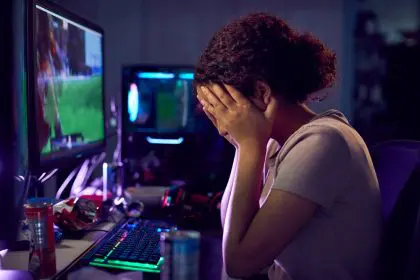In today’s fast-paced, hyperconnected world, the internet and social media have become essential parts of our daily lives. From staying informed about world events to keeping in touch with loved ones, digital platforms offer a variety of benefits. However, the convenience of being constantly connected can come at a steep cost, particularly to your mental health.
As screen time increases, the line between healthy use and harmful habits becomes blurred. Studies consistently show that overuse of social media can lead to heightened anxiety, depression and even feelings of loneliness. What starts as a quick check of your Instagram feed can spiral into a prolonged session of doomscrolling that leaves you feeling drained and anxious.
In this article, we will explore five internet and social media habits that may be quietly harming your mental health, and how you can regain control over your digital life.
1. Endless scrolling
One of the most common and damaging habits is endless scrolling. Platforms like Instagram, TikTok and Facebook are designed to keep you engaged for as long as possible by showing you a never-ending stream of content. The danger lies in how easily you can get sucked into hours of browsing without even realizing it.
The addictive nature of endless scrolling can rob you of valuable time, disrupt your sleep patterns and trigger feelings of inadequacy. Constant exposure to the highlight reels of other people’s lives can make you feel as though your own life doesn’t measure up. This cycle of comparison can lead to low self-esteem and exacerbate pre-existing mental health issues like anxiety and depression.
Breaking the cycle of comparison
To counter this habit, it’s essential to recognize when your scrolling becomes excessive. Set specific time limits for social media use or use apps that monitor your screen time. Prioritizing offline activities — such as exercise or spending time with loved ones — can help you break the cycle and improve your overall mental health.
2. Seeking validation
In today’s digital age, social media has become more than just a platform for connection. It has turned into a place where people seek validation. The likes, comments and shares have become measures of self-worth for many users. While the occasional compliment can boost your mood, basing your self-esteem on how much engagement your posts receive can be detrimental.
The constant need for validation can lead to anxiety — as you may feel pressured to post content that garners attention — even if it doesn’t align with who you truly are. Over time, this can erode your sense of self and cause a significant amount of stress and dissatisfaction.
Prioritize real-life interactions
To prevent this habit from harming your mental well-being, try shifting your focus to real-life connections and personal accomplishments. Understand that online validation is fleeting, and it’s the relationships and experiences you build offline that truly matter. Set boundaries for yourself when posting on social media, and don’t tie your worth to the number of likes or comments you receive.
3. Doomscrolling
With 24/7 access to global news, it’s easy to get trapped in a cycle of doomscrolling — consuming an endless flow of distressing and alarming content. Whether it’s political unrest, natural disasters or health crises, negative news seems to be inescapable. The problem with doomscrolling is that it can heighten your stress levels and contribute to anxiety.
Constant exposure to bad news can make you feel powerless and overwhelmed, as though the world is crumbling around you. Over time, this can have a profound impact on your mental health, leading to chronic anxiety and depression.
Take control of your news consumption
To curb this harmful habit, be intentional about the type of content you consume. Limit your exposure to news during specific times of the day, and be selective about the sources you follow. Balancing negative news with positive or neutral content can also help reduce the emotional toll it takes on you.
4. Cyberbullying and online harassment
While the internet has made it easier to connect with others, it has also opened the door to cyberbullying and online harassment. Whether it’s hurtful comments, public shaming or threats, online harassment is a growing issue that can have severe effects on mental health.
Victims of cyberbullying often experience heightened anxiety, depression and feelings of isolation. The anonymity of the internet emboldens individuals to say things they wouldn’t dare to in real life, making the digital space a minefield for those who are targeted.
How to protect yourself from online harassment
If you find yourself a victim of cyberbullying or online harassment, it’s crucial to prioritize your mental health. Block or mute harassers, report abusive content and consider taking breaks from platforms where harassment occurs. Surround yourself with supportive friends and family, and don’t hesitate to seek professional help if needed.
5. FOMO (fear of missing out)
Social media has intensified the fear of missing out — commonly referred to as FOMO. Constantly seeing others attend events, go on vacations or achieve life milestones can make you feel as though you’re missing out on something important. This leads to feelings of dissatisfaction and a heightened sense of urgency to keep up with others.
FOMO can also lead to impulsive decisions — like attending events or making purchases just to feel included. Over time, this habit can contribute to increased anxiety, stress and even financial strain.
Embrace JOMO (joy of missing out)
One of the most effective ways to counter FOMO is by practicing JOMO — the joy of missing out. Focus on what truly brings you happiness and fulfillment, rather than constantly trying to keep up with others. Appreciate the peace and contentment that comes with unplugging from social media and being present in the moment.
Regaining control of your mental health
The internet and social media are powerful tools, but without proper boundaries, they can quickly become harmful. The five habits outlined above — endless scrolling, seeking validation, doomscrolling, cyberbullying and FOMO — are just a few ways in which your mental health can be compromised in the digital age.
It’s important to be mindful of how these platforms impact your mood, behavior and self-esteem. Taking steps to limit screen time, focus on real-life connections and prioritize your well-being can go a long way in protecting your mental health. Remember, you have the power to control your digital experience, rather than allowing it to control you.
In a world where we are constantly connected, make it a priority to unplug, recharge and nurture your mental well-being.
This story was created using AI technology.















